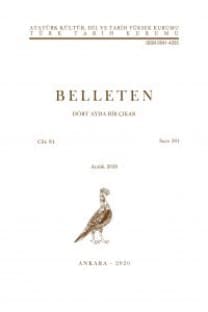KARL TEPLY, Türkische Sagen und Legenden um die Kaiserstadt Wien, Hermann Böhlaus, Wien - Köln - Graz 1980 (A IV/5232) [Kitap Tanıtımı]
Avusturyalı yazar Türkçe bilmiyor. Kitabta tanınmayan veya işlenmeyen Osmanlıca kaynakların kullanılıp onların tartışılması söz konusu değil... Yazar sadece Türkologların yayınladıkları kaynaklara, incelemelere dayanıyor. Bunların da hemen hepsi Avusturyalı ve Alman uzmanların kaleme aldıkları… Eserde Viyana muhasarası ile ilgili olduğu söylenen ve doğuşu ona bağlanan bazı Türk menkibelerinden söz ediliyor. Karşılaştırmalı bir tenkit yapmak yazar için imkansız... özellikle (Goldene Apfel-Kızıl Elma, 35-73 sah.) mitinin ele alındığı bölüm, bu konuda okuyucuya yeni veriler getirecek bazı sorunları aydınlatacak güçte değil, kitabta ele alınan menkibeleri bazen ilgiyle izlememek elde değil, ama edebiyat tarihçiliğinin en zor, en çok lisan bilgisi ve literatür tanımayı gerektiren bir dalı menkibelerdir. Teply'nin bu konudaki nakil ve yorumlarından ne derecede yararlanılabileceğini zamana ve okuyucunun bilgisine bırakıyoruz.
Anahtar Kelimeler:
Viyana, Türk Destanları, Türk Efsaneleri, Türkoloji, Menkıbe
A Proposal for Research on Indo - Turkish Relations
Interchange between India and Turkish world is older than Islam and there is little doubt that Indians and Turks during the Hittite period have several common religious concepts and even political contacts. It is generally believed that the first contact of the Turks took place with the compaigns of Mahmud Ghaznavi in India in the first decades of the II th. century A. D. but in fact India came into direct contact with the Turks through Turkish states first established on Indian soil in the first century B. C. long before the advent of Muslims in India. This was the first phase of Indo-Turkish relations which ended with the fail of the Turk Shahi dynasty. Later on in the second century of Christian era a famous Turk ruler emerged in India and made his way to the glory and renown. He is known as Kanishka (120-162 A. D.). Warahmehra, in his well-known Sanskrit work of Rajtrangi, describes the emperor Kanishka and his successors as belonging to Turushka family. The details of description of this emperor available to us, positively point to the fact that Kanishka belonged to Turkish race and not to Mongols. His coins bears the title of "Shaunanushah" which is a Turkish word.
Keywords:
Indo-Turkish, India, Turkey, Kanishka, Sanskrit,
- ISSN: 0041-4255
- Yayın Aralığı: Yılda 3 Sayı
- Başlangıç: 1937
- Yayıncı: Türk Tarih Kurumu
